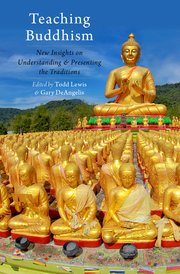Laszlo Zsolnai ‘Buddhism and Economic Development.’ , in Teaching Buddhism, eds. Todd Lewis, and Gary DeAngelis, Oxford University Press, Oxford, 2016.

Buddhism and Economic Development
Buddhist Economics is not the same as Economics of Buddhism. The former is a modern discourse that utilizes elements of Buddhist thought to construct an alternative model of the economy and the latter is a study of how Buddhists organize their econimic life in real-world social settings, past or present. Buddhist Economics is essentially a normative enterprise while Economics of Buddhism is a descriptive endeavor.
Also Buddhist Economics is not synonymous with traditional Buddhist thought, interpretation, or practice. It is a construct developed by Western economists and Buddhist thinkers inspired by Buddhist ethics and the Buddhist monastic ideal. It represents an alternative approach to economic life, which is radically different from what mainstream Western economics offer. Buddhist Economics promotes want negation and selfless service for achieving happiness, peace and permanence. These ideas might seem irrational or at least naïve for the Western economic mind which is preoccupied by cultivating desires and the maximization of profit or utility. However, the deep ecological and financial crisis of our era renders alternative solutions worthy for consideration.